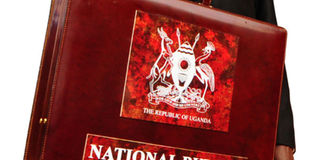Cabinet should set its priorities right

This newspaper on Wednesday reported that Cabinet on Monday approved the creation of additional 31 new constituencies. The reason given for creating the new constituencies is to bring services nearer to the people.
Indeed, the creation of the new constituencies comes on the heels of the same Cabinet approving 15 new electoral areas earlier, again to bring services nearer to the people.
According to the State Minister for ICT and National Guidance, Mr Peter Ogwang, the Cabinet’s approval of the new constituencies is in line with Article179 Clause 4. “All these counties were passed by the respective district councils and some have waited since 2010…,” he said. Granted.
While the mushrooming of districts, cities, and constituencies for the reasons the Cabinet is giving is understandable, it is high time the Cabinet demonstrated to citizens how the numerous elective and administration units created in the past and those being created now have or will improve the fortunes and livelihoods of ordinary citizens.
Considering that Uganda has one of the world’s youngest population in the world with more than 78 per cent of its population below the age of 30, and cognisant of the fact that the country has one of the highest youth unemployment rate in Sub-Saharan Africa, it is important to ascertain how new districts, cities, town councils, constituencies, etc, have or will impact youth livelihood.
How will the new layers of administrative units turnaround the fortunes of Uganda, which is regarded as one of the world’s most impoverished and least developed countries, with nearly a quarter of its population living below the poverty line?
To ordinary citizens, bringing services nearer to the people should translate into provision of quality feeder and trunk roads across the country, among others. Yet in spite of the many districts and constituencies we have, many of our roads remain in a sorry state.
What if government established health facilities and stocks them with medicines, equips them and provides all the requisite supplies, complete with posting health workers there? Wouldn’t that be a more tangible contribution to wananchi ?
Today, schools, especially in the rural constituencies, hardly perform well in national exams due to lack of structures, qualified teachers and scholastic materials. This is what government needs to fix instead of creating opportunities for individuals to get positions as MPs, councillors, CAOs, RDCs, all of whom are more of a burden taxpayers than problem solvers. The question to the Cabinet is, what will the additional representation do differently to improve lives that others before them failed to do, and why?
The reality is, it is the political will, not increasing the number of constituencies or districts, that will bring services nearer to wananchi. Cabinet should set its priority right.




